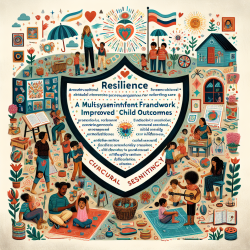Introduction to the ARCCH Model of Resilience
The increasing prevalence of trauma in children, including adverse childhood experiences (ACEs), highlights the need for a comprehensive resilience framework. The ARCCH Model of Resilience offers a flexible, multisystemic approach to fostering resilience in individuals, families, and communities. This model integrates five core components: Attachment, Regulation, Competence, Culture, and Health, providing a holistic framework to evaluate strengths and identify areas needing support.
Understanding the Core Components of the ARCCH Model
- Attachment: This refers to the emotional bonds between individuals and their caregivers or community. Secure attachment is foundational for resilience, as it provides a sense of safety and support.
- Regulation: This involves the ability to manage emotions and behaviors. Effective regulation is crucial for coping with stress and adversity.
- Competence: Competence encompasses the skills and abilities that enable individuals to adapt and thrive in various environments.
- Culture: Cultural identity and context significantly influence resilience. The ARCCH Model emphasizes the importance of culturally responsive interventions.
- Health: Physical and mental health are integral to resilience. The model considers health both as a potential area of vulnerability and as a strength.
Applying the ARCCH Model in Practice
Practitioners can use the ARCCH Model to guide interventions in various settings, such as schools and community organizations. By focusing on the interconnectedness of the five components, practitioners can develop tailored strategies to support resilience in children and their families.
For example, a school-based intervention might involve strengthening attachment by fostering positive relationships between students and teachers, enhancing regulation through social-emotional learning programs, and promoting competence by recognizing and building on students' strengths. Cultural sensitivity can be integrated by acknowledging and respecting students' cultural backgrounds, while health can be supported through access to mental health resources and healthy lifestyle education.
Encouraging Further Research and Implementation
The ARCCH Model of Resilience is a promising framework for addressing the complex needs of children who have experienced trauma. Practitioners are encouraged to further explore and implement this model in their work, contributing to the growing body of evidence supporting its effectiveness.
To read the original research paper, please follow this link: ARCCH Model of Resilience: A Flexible Multisystemic Resilience Framework.










